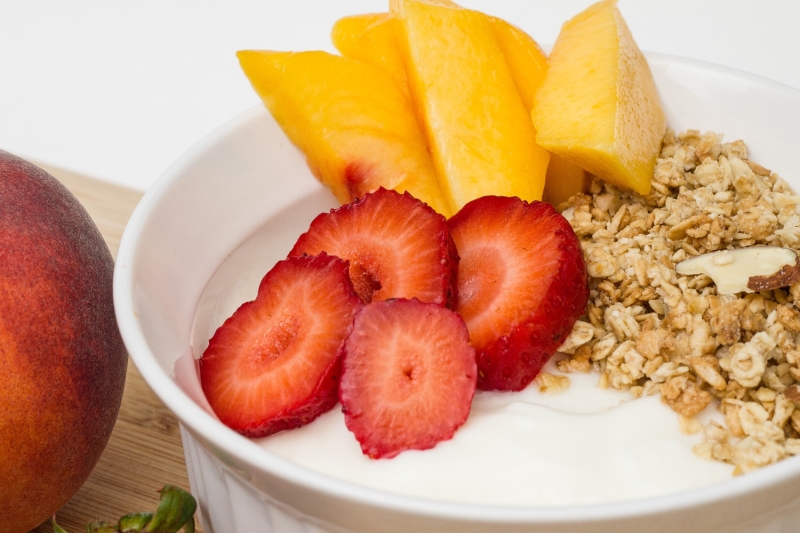
Carbs are healthy. Despite the bad reputation that they get from those individuals following a low-carb diet, such as Keto, Paleo, and the latest fad, the carnivore diet, many nutritionists, dietitians, and medical professionals believe that the right carbohydrates can — and should — be part of a healthy, well-balanced diet.
Carbohydrates provide energy to the cells in your body, especially during long and grueling training sessions, and fiber can help aid digestion and bowel regularity. Carbs also provide less than half the number of calories per gram compared to fat, making them a viable macronutrient for weight loss diets. But choosing the best high carb foods is crucial, however, as not all carbs are created equal.
The key to maximizing the health benefits of carbohydrates is to choose high-quality sources of complex carbohydrates. Foods such as whole grains, organic fruits, organic starchy vegetables, and legumes provide carbohydrates and no added sugars.
These carbohydrates are lower on the glycemic index, which means they fuel the body with sustained energy and keep blood sugars more stable, leading to better insulin sensitivity. Here are some of the healthiest high carb foods you can add to your diet.
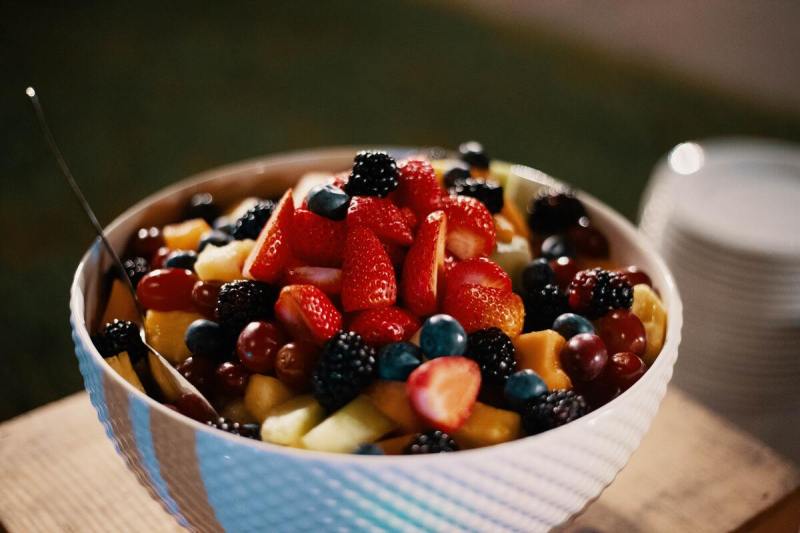
Benefits of carbohydrates
Despite their bad reputation, carbohydrates are essential for your health due to the following reasons:
- Providing energy: Carbohydrates are the body’s main fuel source, as they are broken down into glucose, which the body uses for energy during various activities.
- Protecting against disease: Whole grains and dietary fiber from whole foods have been linked to a lower risk of heart disease, stroke, obesity, colon and rectal cancers, and type 2 diabetes. Fiber is also crucial for maintaining optimal digestive health.
- Controlling weight: Eating ample amounts of fruits, vegetables, and whole grains can aid in weight control. These foods are high in fiber and bulk, which helps you feel full on fewer calories. Contrary to claims made by low-carb diet proponents, there is limited evidence suggesting that a diet rich in healthy carbohydrates leads to weight gain or obesity.
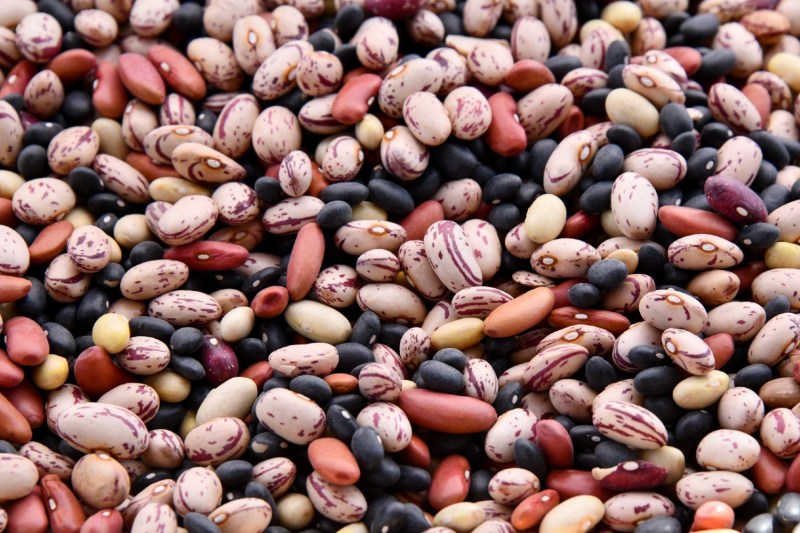
Legumes
Legumes such as beans, peas, and lentils, are one of the most nutritious high-carbohydrate foods. They are rich in vitamins, minerals, phytonutrients, and antioxidants, such as anthocyanins and isoflavones. Diets high in legumes have been associated with lower risks of cancer, obesity, metabolic syndrome, and cardiovascular disease. Beans, lentils, and soy are also packed with soluble and insoluble fiber. Soluble fiber helps you feel full, bulks up stool, and promotes bowel regularity. Insoluble fiber is considered a prebiotic fuel source, which means it nourishes the beneficial bacteria residing in your digestive tract. Your gut microbiome performs a variety of critical functions, including digesting and harnessing the nutrients in food, producing vitamins B12 and K, reducing inflammation, and defending against pathogens.
Legumes are a good source of protein for vegans and vegetarians. They are also high in carbohydrates. For example, one cup of cooked lentils contains about 40 grams of carbohydrates, of which 16 are dietary fiber. Black beans, garbanzo beans, and kidney beans provide a similar carbohydrate profile. Peas have fewer carbs, but a greater percentage of the carbohydrate content is natural sugar rather than fiber.
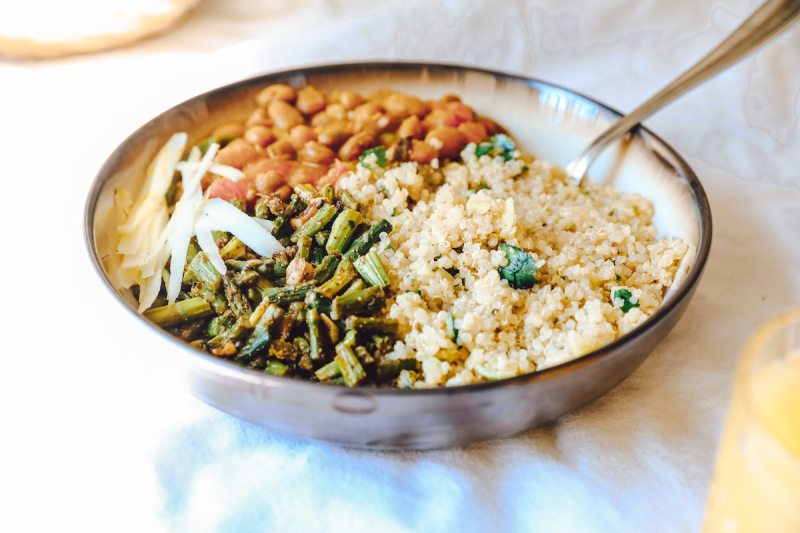
Quinoa
Quinoa is often grouped together with grains, but it’s actually a seed. It’s a nutrient-dense superfood, offering a complete source of protein with all nine essential amino acids. It’s also 70% carbohydrates by weight, offering sustained energy. Quinoa also contains B vitamins and iron, which are vital for transporting oxygen around the body. Moreover, quinoa is naturally gluten-free.
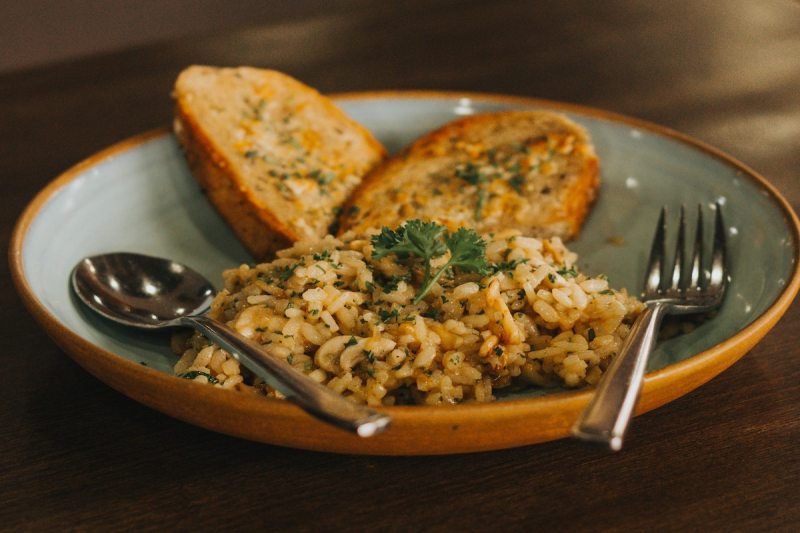
Whole grains
Whole grains like brown rice, buckwheat, whole wheat, millet, barley, and whole oats are excellent sources of carbohydrates. Unlike the refined grains used to make white flours, white pasta, pastries, bagels, and many kinds of cereal, whole grains leave the bran and hull of the grain intact. Not only does it preserve tons of nutrients like iron, B vitamins, and other minerals, but it also keeps the fiber content high, making whole grains more filling. Where possible, swap any refined grains with unprocessed whole grains for a significant boost in nutrients and increased satiety.
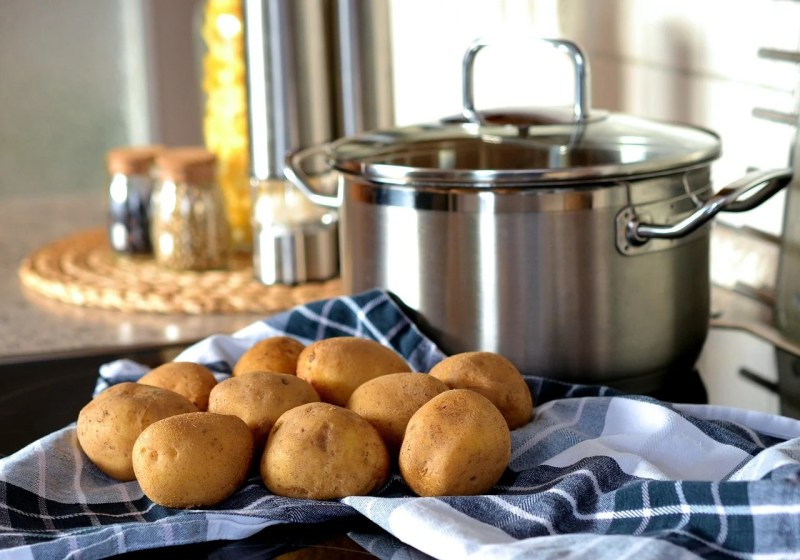
Potatoes
Potatoes are usually turned down by proponents of low-carb diets, but these arguably maligned spuds are actually quite nutritious. Potatoes are tubers, which are attached to the roots of a plant and serve as storage houses for nutrients. As such, they are packed with essential nutrients, including vitamin C, B vitamins, potassium, and minerals such as magnesium and phosphorus. They also store energy for the plant in the form of complex carbohydrates. One medium potato contains about 37 grams of carbohydrates, including 4 grams of fiber.
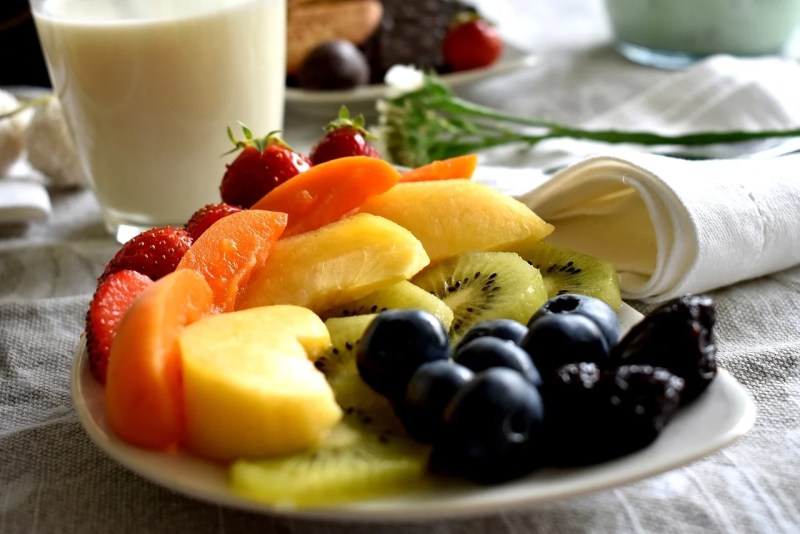
Fruit
Fruits are almost entirely composed of carbohydrates and water, with little protein or fat content. While some fruits are high in sugar, all the sugar is natural and often accompanied by some fiber, water, vitamins, and minerals. The carbohydrate content varies depending on the type of fruit, with bananas, mangos, pineapples, and dates having the highest carbohydrate content.
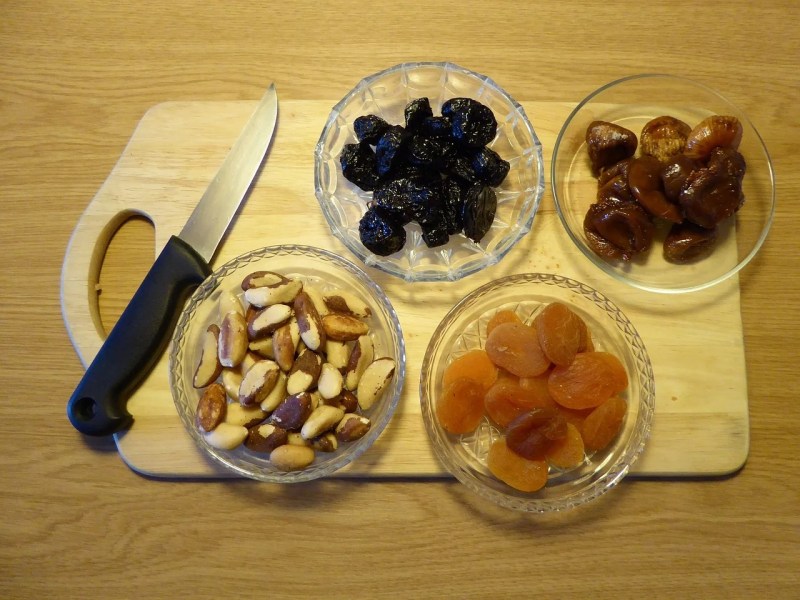
Dried fruit
Dried fruit contains even more carbohydrates per gram than fresh fruit because all the water has been removed. This makes dried fruit more calorically dense, so it can be an energizing pre-workout snack that can give you the energy you need without leaving you bloated or feeling overly full. Dried fruit is also rich in nutrients. For example, dried apricots have 7.5 mg of iron per cup, or nearly the daily value for most men and about 42% for women.
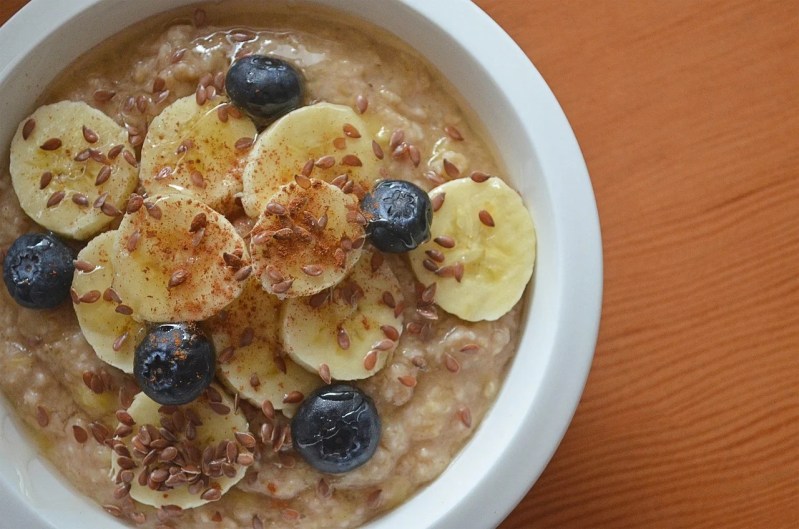
Oats and whole grain cereals
Oats are a whole grain, so rolled oats or steel-cut oats made into oatmeal, porridge, or muesli make for a healthy, high-carbohydrate breakfast. Packaged granolas can be healthy as well, though many are made with lots of added sugars, so be sure to look at the ingredients list and nutrition facts before choosing granola. If you’re a vegan or vegetarian, fortified cereals can be an important important source of vitamin B12, so don’t shy away from enjoying your favorite bowl of low-sugar, whole-grain cereal.
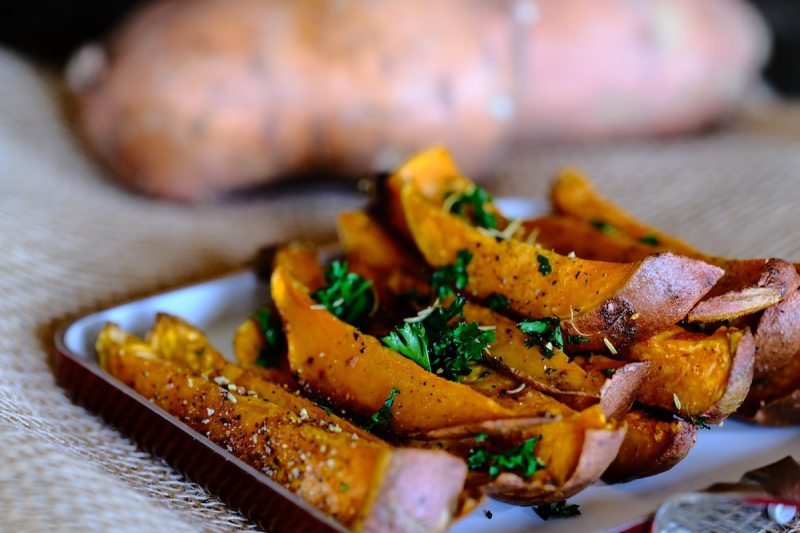
Sweet potatoes and yams
Sweet potatoes and yams are tubers that are one of the best sources of vitamin A and beta-carotene, both of which support eye health and skin health, among other antioxidant properties. Like potatoes, sweet potatoes are also high in complex carbohydrates, with about 37 grams per medium sweet potato (5 grams of which are fiber). Sweet potatoes have been shown to help regulate blood sugar levels and reduce the risk of diabetes.
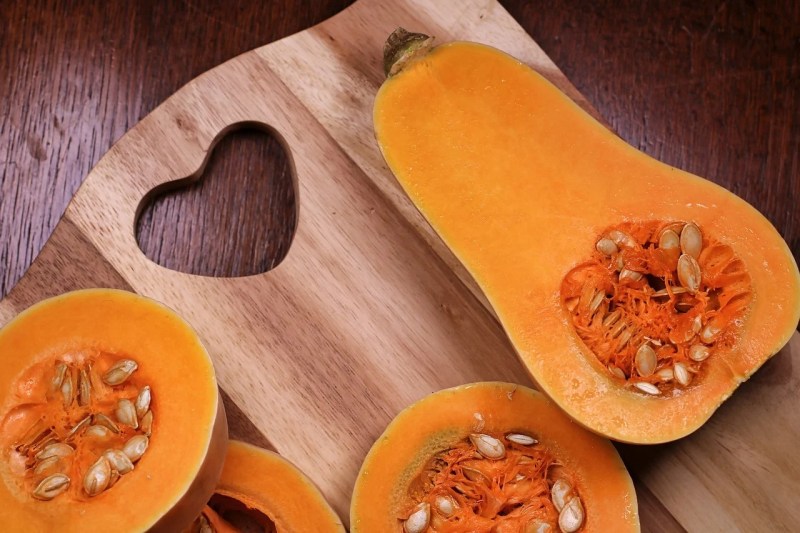
Winter squash
Technically a fruit, winter squash varieties are high in complex carbohydrates. From butternut squash to acorn squash, delicata squash to kabocha squash, winter squashes are sweet, creamy, and filling, making for a hearty side dish or soup ingredient for chilly weather. The orange flesh is rich in beta-carotene and the nutrient-packed seeds can be roasted and enjoyed, providing everything from healthy omega-3 fatty acids to zinc.
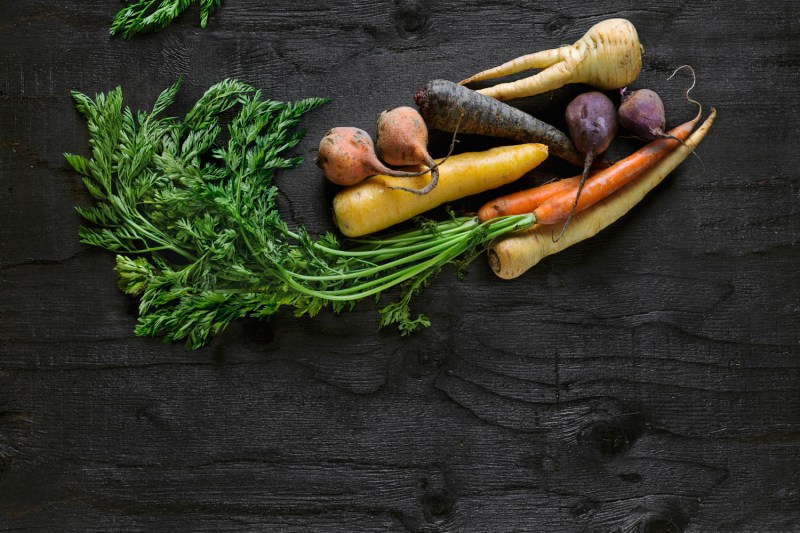
Root vegetables
Root vegetables like beets, carrots, and parsnips are the edible roots of the plant. As roots, these healthy vegetables store nutrients for the plant, such as vitamins, minerals, and sugars in the form of complex carbohydrates, which is what lends the characteristic sweet flavor. They also contain fiber, antioxidants, and polyphenols.
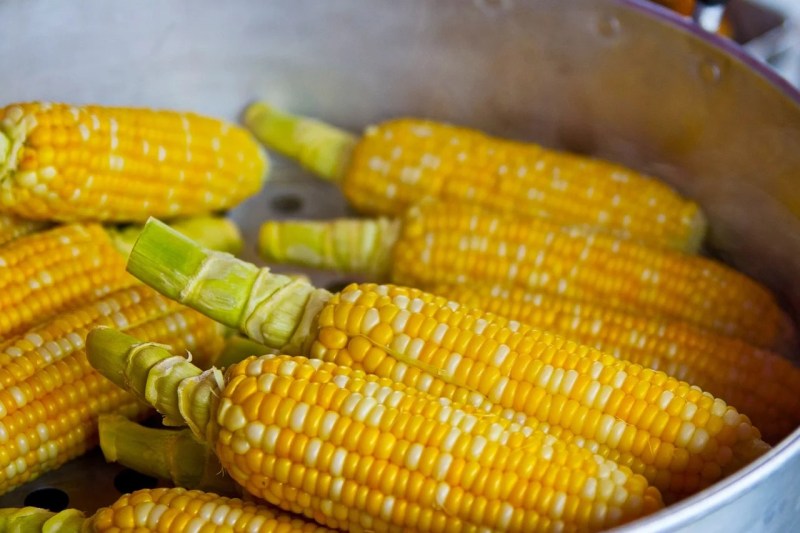
Corn
Corn is a delicious summertime sweet vegetable. It’s juicy, tender, and versatile, enjoyed straight off the cob, grilled, steamed, sauteed, and anywhere in between. One cup of corn provides 41 grams of carbs, including 5 grams of fiber. It’s also rich in vitamin C, which supports your immune system and prevents oxidative damage. Corn also provides B vitamins, potassium, magnesium, and antioxidants lutein and zeaxanthin, which support eye health.
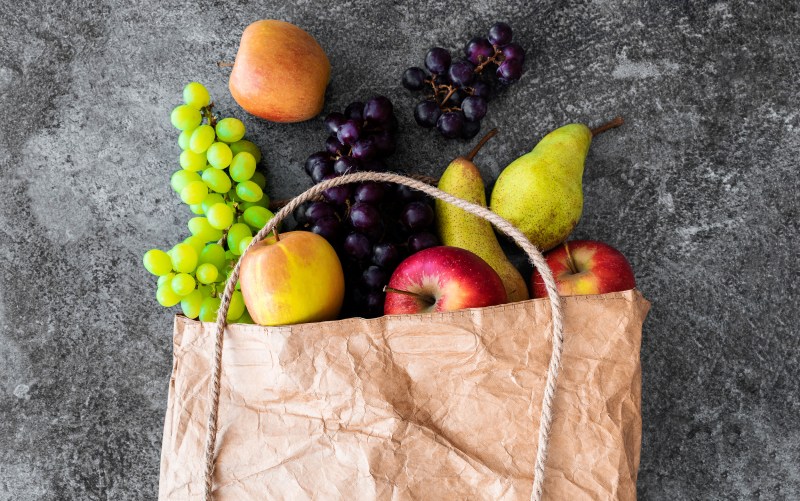
Right carbs at the right time
Adding these nutritious, high-carb foods into your diet will provide long-lasting energy throughout your day. The key is to have the carbs pre- or post-workout to ensure you use them as an energy source as opposed to storing them as fat.
Editors' Recommendations
- Is honey a superfood? Here are 10 reasons we think so
- The chromium benefits you should know about (and the best food sources for you)
- High protein diets: Everything you need to know
- Improve your hair: 14 delicious biotin-rich foods to add to your diet right now
- Stay hydrated this summer: 5 foods with a surprisingly high water content




